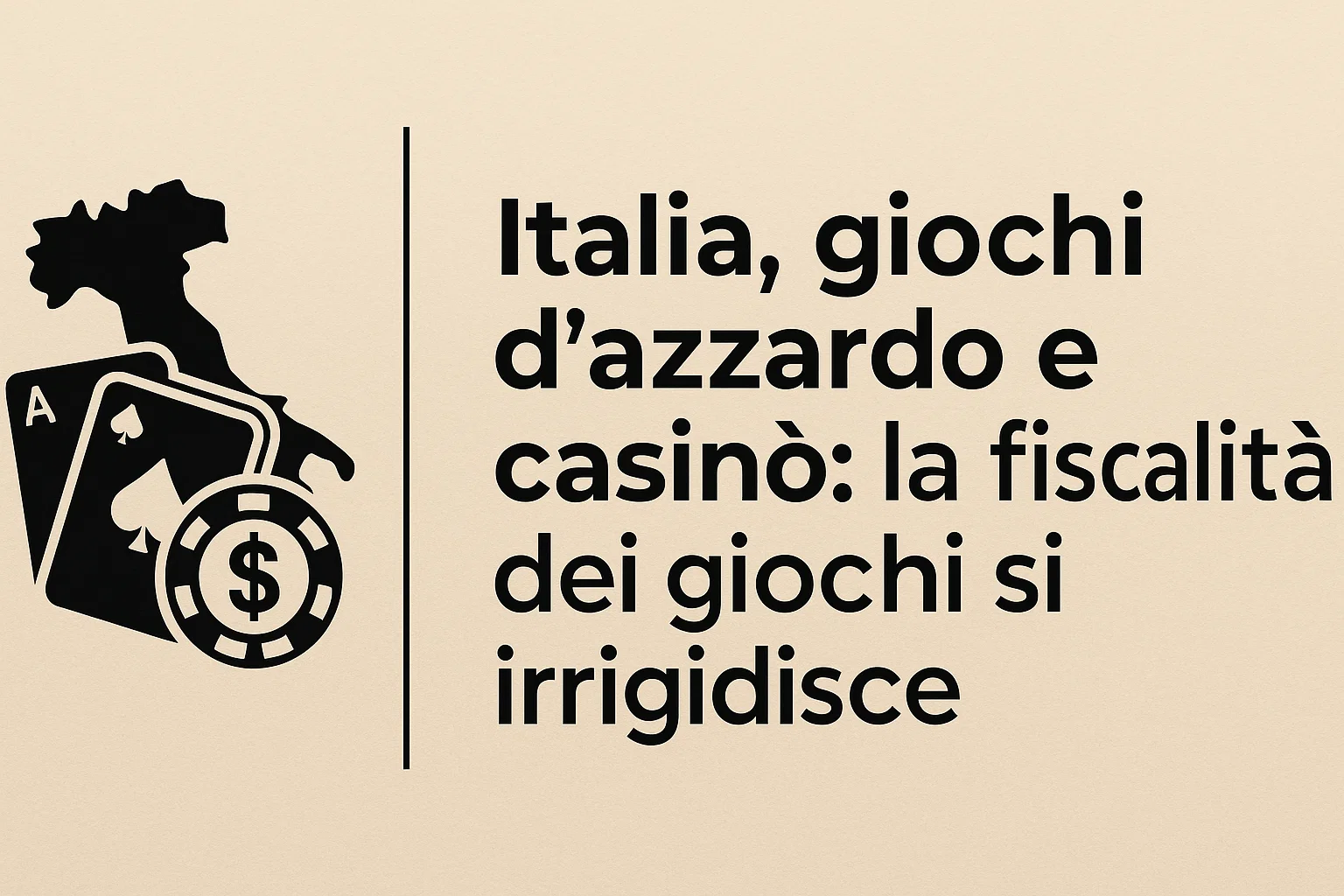

-
Contact us
Contact us
Australian Clearinghouse for Youth StudiesUniversity of Tasmania,
P O Box 5078, UTAS LPO,
Sandy Bay, 7005,
Tasmania, AustraliaTel: (03) 6226 2591Fax: (03) 6226 2578Email: [email protected] -
Search ACYS
- Events
Italy, Gambling, and Casinos: The Taxation of Games Becomes More Stringent

Luck may start to pay more. The state has instituted taxation of gambling as stricter: a subtle refinement, but one with very concrete consequences for winners' pay-outs. Sporting wagering, lotteries, scratch cards, casinos, and horse racing are treated to this imposition of tariffs. Even as much as winnings are still related to the thrill of probability, their taxation becomes increasingly concrete. For open examination and information, please visit our team.
A Discreet yet Significant Increase in Levies
The principal amendment is the increase of the gambling stakes rate, a percentage that is not deducted from players' gross winnings but from the total amount of bets received before prize awarding.
In real terms, this means that for every euro wagered on an authorized gambling activity (such as a sports bet or a lottery ticket), the state now retains a little bit more. This model applies to both bricks-and-mortar casinos and approved Internet sites.
Why This Reform Now?
Faced with an urgent need for new revenues, the betting business appears to be an excellent and politically acceptable choice. The state is pinning its hope on continuing growth in this sector, fueled by:
- developing internet platforms,
- the upsurge in sports gambling,
- the long-standing popularity of lotteries and scratch cards.
According to official statistics, the Italian gambling market generates billions of euros of gross product, showing healthy growth. It is therefore, consequently, a strategic source of capital, without the alienation that would be produced by other, more visible tax increases.
Which Games Are Affected?
The regulation applies to all games subject to authorisation or played by legal suppliers: online casinos, scratch cards, horse racing and sports bets.
Internet poker, with its special tax regime on a commission basis (the "rake"), is unaffected by this change.
What Does it Mean for Players?
At first glance, the average player will think the hike is innocuous, since the stakes and winnings advertised on screen remain unchanged. However in the long run, the overall reward to players could decrease slightly.
The increase in levies on bets means that less money is redistributed as prizes. Jackpots will continue to be advertised to attract players, but the frequency and size of small and medium prizes are sure to be reduced.
This shift is likely to affect particularly:
- regular sports betters,
- scratch card enthusiasts,
- horse racing enthusiasts, most vulnerable to prize redistribution balance.
An Underlying Trend: Taxing Popular Entertainment
The ratcheting up of gambling taxation is part of a broader plan: taxing consumption, not income taxation. And along with other increases (airplane ticket fares, sweetened drinks, real estate taxes), gambling taxation underscores this logic of "micro-fiscal levies" on everyday habits.
The government acts in twofold logic:
- growing and strong fiscal yield, thanks to the dynamism of the sector
- low political cost in the short run, since gambling is not a necessity and its taxation appears fairer.
Key Takeaways
Gambling will be more expensive indirectly. While the tax increase may seem negligible, it is the cumulative effect of micro-hikes across different domains that may pin the citizens down.
For gamblers, this could mean:
- playing fewer times,
- comparing deals more rigorously,
- factoring in higher taxation into their recreation allowances.
With this fortified taxation, fortune has never been more closely connected with economic fact.